
S1E42 - Pamela Paul - The Creative Act of…Reading
We met with columnist, journalist, editor and author Pamela Paul for a conversation about her life of words. We spoke of her career at the New York Times, and surveyed the topics of her columns and eight books. At the outset, it seemed that our conversation would focus on writing. Paul has written extensively on numerous thought-provoking and controversial topics, and she is equally eloquent speaking extemporaneously, especially on consumer culture or on a topic from a recent column or a book she happens to be reading. As we delved into her book “How to Raise a Reader,” the questions from our audience began to flow in. By the end, we found ourselves in a deep reflection on the writer’s creative counterpart - the reader. The hour flew by, and left us with a renewed inspiration to pick up a book. Join us.
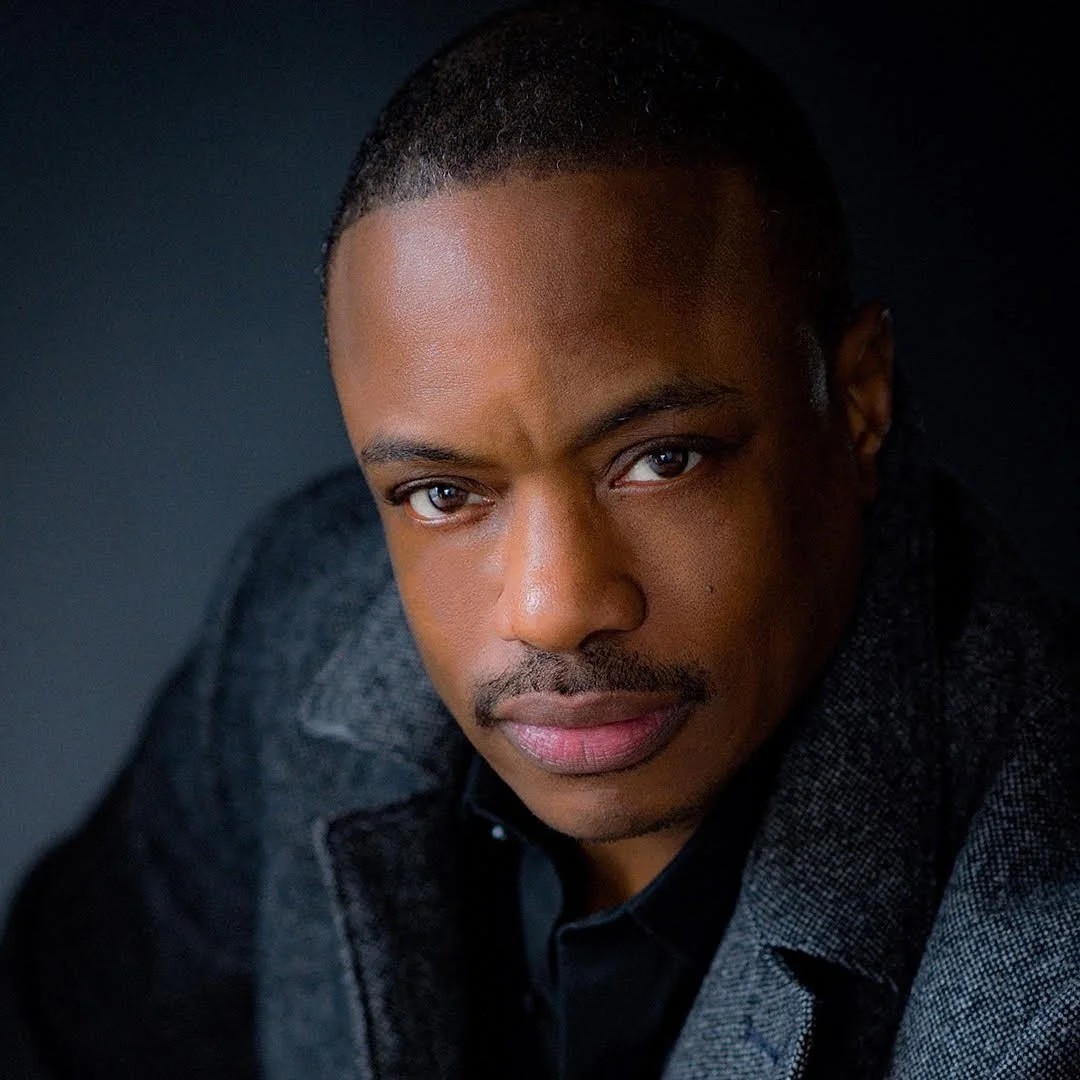
S1E41 - Frederick Van Johnson - Punishing Pixels for a Better Story
We met with photographer and podcaster Frederick Van Johnson to learn about the latest developments in photography and philosophize with him about the outsized role it plays in our evolving world. Van Johnson contends that photos like Jeff Widener’s 1989 shot of Tank Man in Tiananmen Square have always had the power to communicate immense meaning in the glance of an eye. A photo can tell a story and can change minds. Advancements in photography are expanding access to the stories that need to be told. And yet, a photo is half the capture of the image, and half the “performance” of modifying the image to tell the stories that want to be seen and heard. Can we assume that any photo today reflects the “truth?” No. But this science fiction future need not be doom and gloom if we are solving for humans and trying to make the world better for humans. AI and technology advancement is not a zero sum game. It is always changing and growing, as are we. The key is to see where things are going and press forward smartly to take advantage of the bigger “wrenches” that are now within reach. We can do more with less, and live more meaningful, human lives. Join us.
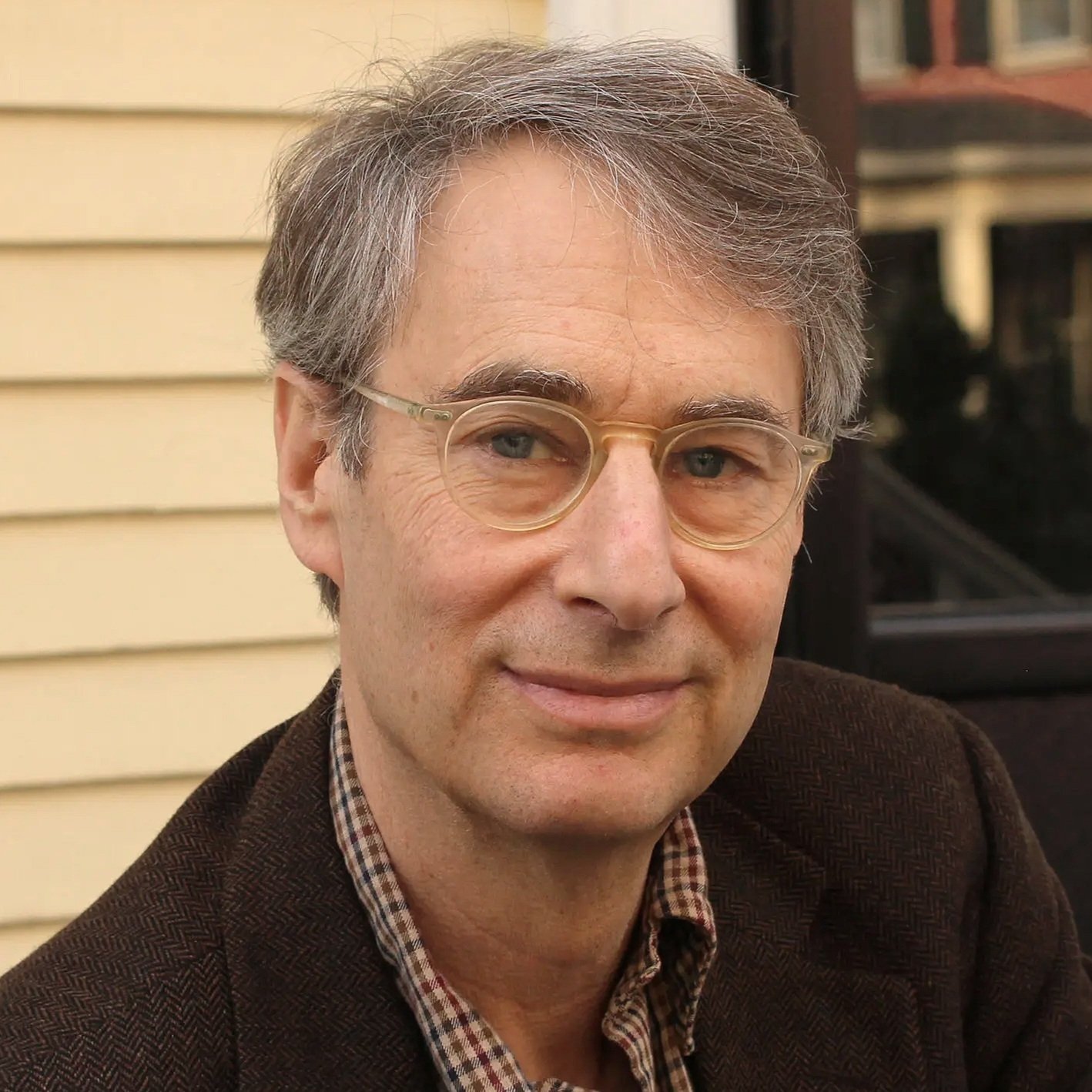
S1E40 - Peter Kramer - Fiction in an Age of Lies
We met with psychiatrist, professor emeritus and best selling author, Peter Kramer, to explore depression, antidepressants and his fiction and non-fiction body of work. His most recent novel is Death of the Great Man, a political who-done-it satire about the improbable clinical relationship between a narcissistic despot and his psychotherapist. Our conversation covered equal parts general psychiatry and book discussion. His clinical work has served and shaped Kramer’s work as a novelist. As Jennifer Egan described in an earlier Grey Matter episode, Kramer sees literature as a unique vehicle for putting ourselves into other peoples’ shoes. This is similar to the task of the psychotherapist, who seeks to assist patients by getting into their minds to spur them to self-examination. Spoiler alert - The Great Man is fashioned after Donald Trump. Among the many dimensions of the book, it wants us to think about standing behind and accepting someone who uses lying as a prime political technique. Other themes are selfishness versus selflessness, intimacy versus autonomy, death, truth, and the perils of giving way to despotism over the long term. Woven throughout the conversation is commentary on the efficacy of antidepressants and their impact on personality, depression as a multi-system disease, “retirement” when still working, psychiatrists giving advice, self-assessment, non-attachment, the Media’s portrayal of mental health, psychiatric diagnoses using bots, the fluidity of diagnoses, Freud, sidelining intellectuals, and the difficulty of “out-trumping” Trump. Join us.
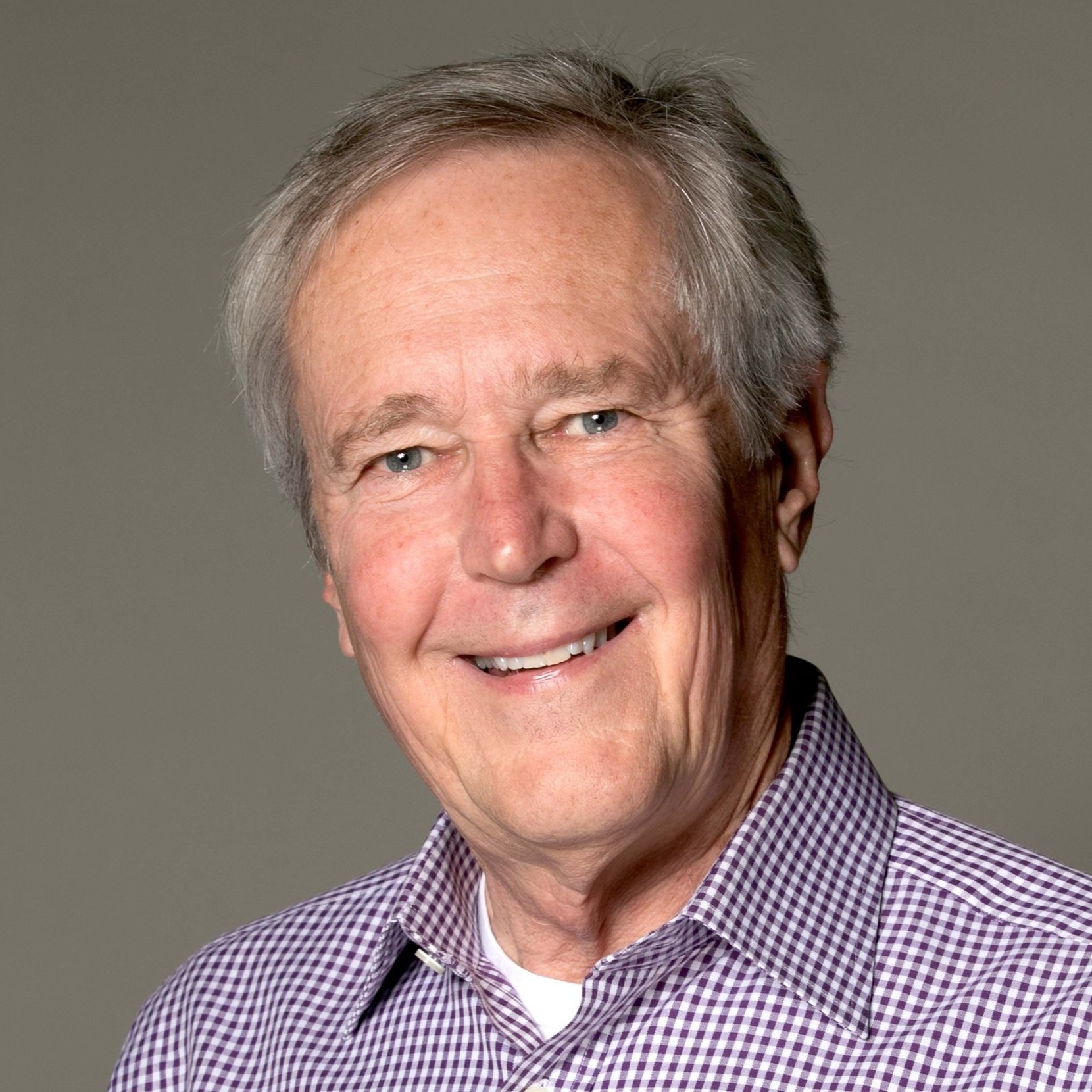
S1E39 - James Fallows - Keeping a Level Head
We met with one of the preeminent figures of American journalism, James Fallows, to discuss equal parts world affairs and the craft of journalism. Fallows brings the perspective of a lengthy and illustrious career covering a vast array of domestic and international issues, including politics, technology, Asia, aviation and hometown America, to name a few. We touch on all of these to get his perspectives on Trump’s presidency and current legal challenges, AI, social media, US/China relations, working as Carter’s speech writer, the news industry in general, and much more. A believer that “transparency is the new objectivity,” Fallows openly acknowledges upfront the aspects of his background that are potentially relevant to his views. While today there are so many things happening at a distance that alarm us, Fallows ends by reminding us that he consistently finds great resilience and possibility when he goes local to get a closer look. His observations are informative and sober, but ultimately optimistic. Join us.
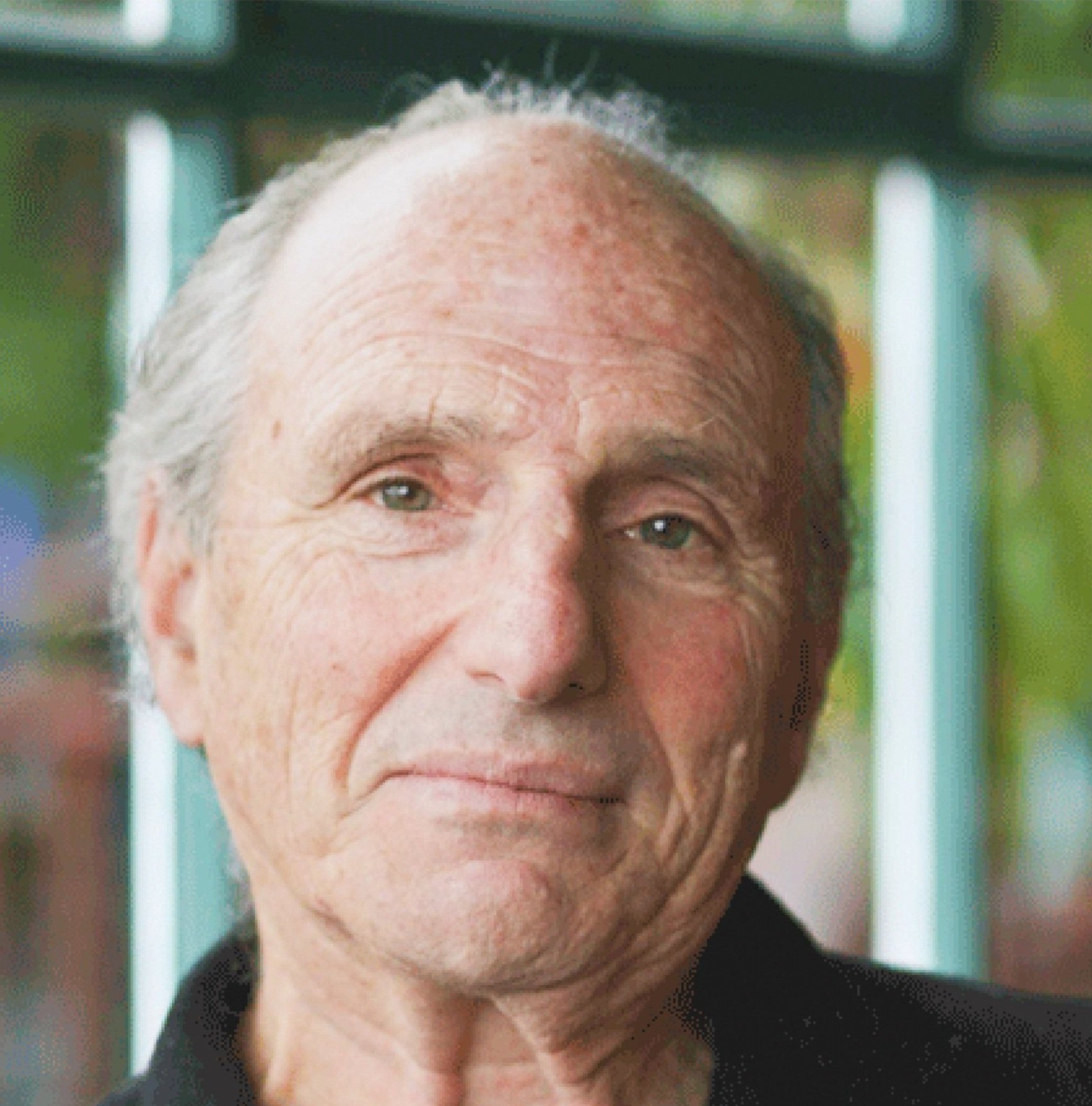
S1E38 - Ira Steinman - Coherence of the Self
[Content Warning: This episode contains descriptions of hallucination and language that might be disturbing to some audiences.]
We met with expert psychiatrist, Ira Steinman, to explore the little-understood world of schizophrenia. While this may seem like a niche topic, Steinman’s insights into the condition reveal valuable lessons for all of us. Recounting cases from his 2009 book, Treating the Untreatable, and from his clinical practice, Steinman describes how he helps his patients discover from where their symptoms arise, and how their symptoms serve them. He has then seen untreatable patients cured, and in many cases, fully freed from reliance on antipsychotic medications. Many of these recoveries are nothing short of miraculous. Steinman explains how victims of schizophrenia suffer from extreme dissociative disorder. We don’t need to suffer from the most debilitating symptoms of schizophrenia to appreciate the cautionary emphasis on the importance of bringing the self together, and cultivating a unity and coherence within ourselves. Join us.
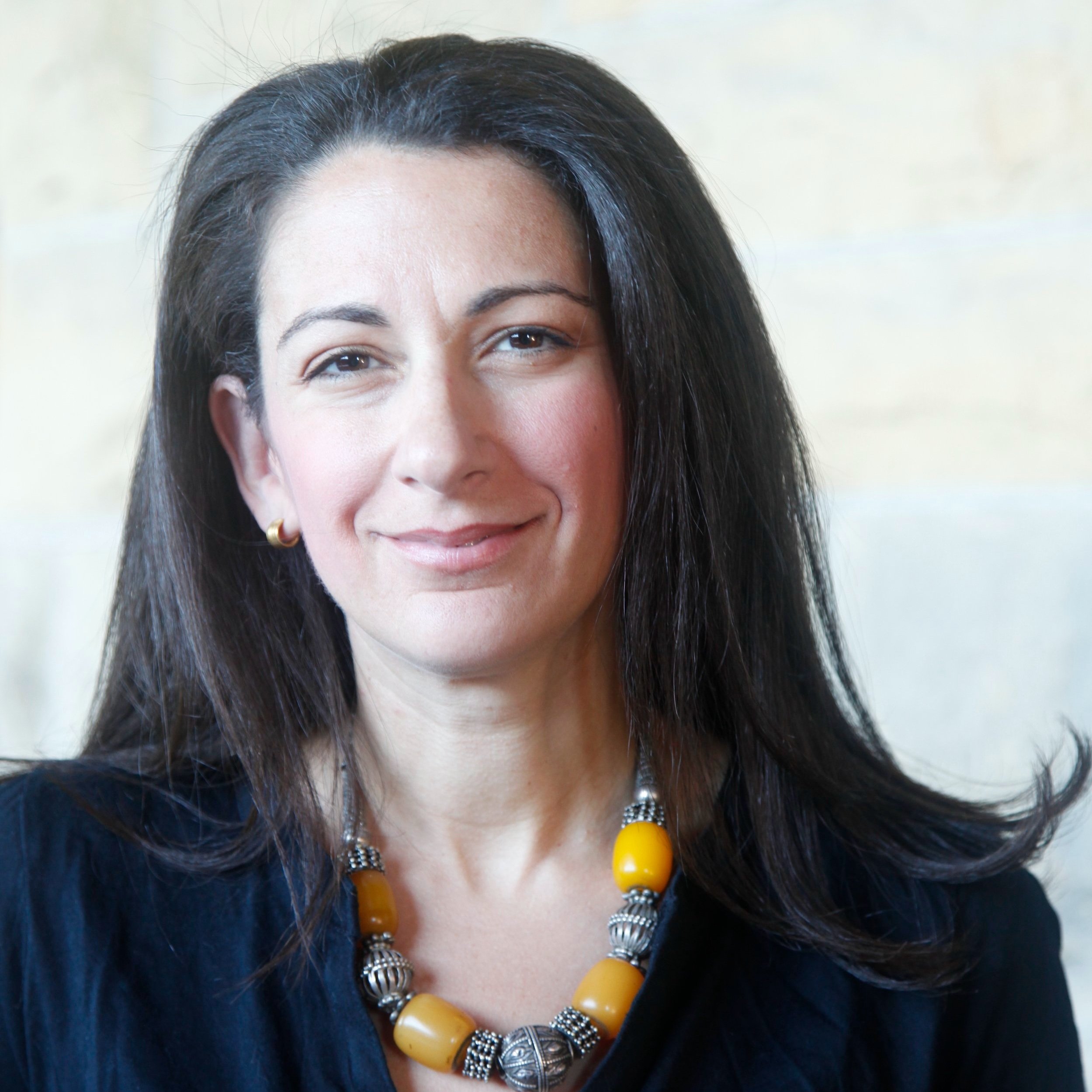
S1E37 - Janine Zacharia - Realpolitik, Media Control and Democracy’s Decline
We met with renowned Middle East correspondent and journalism lecturer, Janine Zacharia to do a round up on Middle East current events. The scorecard is sobering. We are at an inflection point. While popular attention turns to Russia and China, press freedoms across the region continue to decline. The circulation of deliberately false information is a central cause. This fuels rampant political polarization, which in turn helps autocrats win. Violence and oppression against journalists is on the rise. Our own internal political dysfunction makes coherent foreign policy nearly impossible. As America’s standing and influence in the region wanes, China (who requires no standards for human rights or press freedoms) is more than happy to fill in our vacuum. So Zacharia asks an existential question - how might we restore respect for fact-based news? This is the lifeblood of functioning democracy. There are no easy answers, but she helps us see that this one leverage point has implications for the entire globe. Join us.
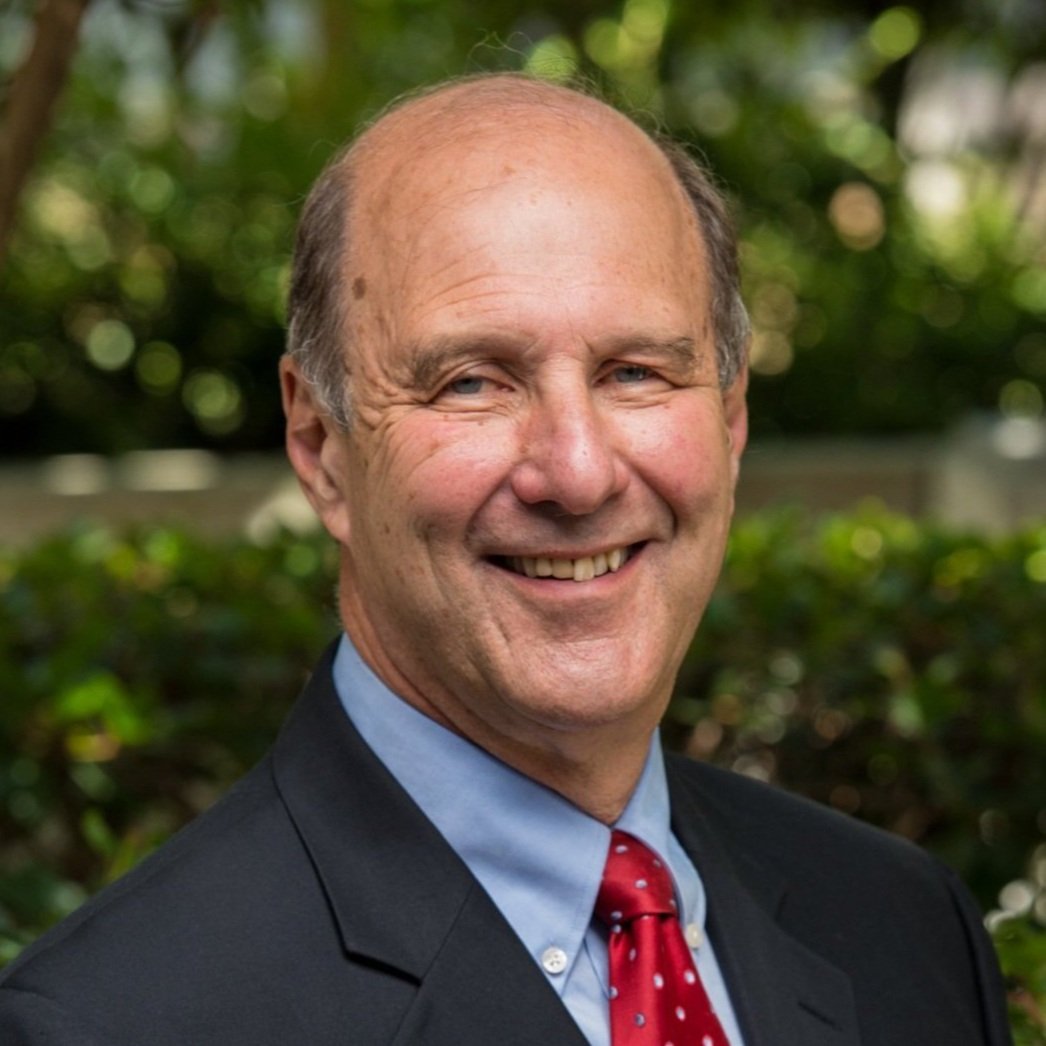
S1E36 - David Spiegel - Managing Our Minds
It seems anxiety and depression surround us, and perhaps plague us personally. To help us understand the domain of the mind, we met with pre-eminent Stanford psychiatrist and hypnosis expert, David Spiegel to explore applications of psychotherapy and self-hypnosis. Our hour of conversation proved to be an invaluable primer for everyone, whether we are currently in care, know someone who is, or might find ourselves facing anxiety and depression in the future within ourselves or within a loved one. Spiegel gave us helpful insights on approaching post-traumatic stress disorder (PTSD), anxiety, depression, emotional triggers, pain, chronic or terminal illness, and generally managing our mental states to live better lives. We briefly touched upon how his smartphone-based self-hypnosis app, REVERI, makes this healing modality accessible to anyone. Spiegel gave us cautionary advice for loved ones of a person in treatment for anxiety and depression. We also talked about the broader social aspects of psychology, including guns and mass shootings, the scapegoating of mental illness, AI, admissibility in court of hypnosis-based testimony, and much more. Join us.
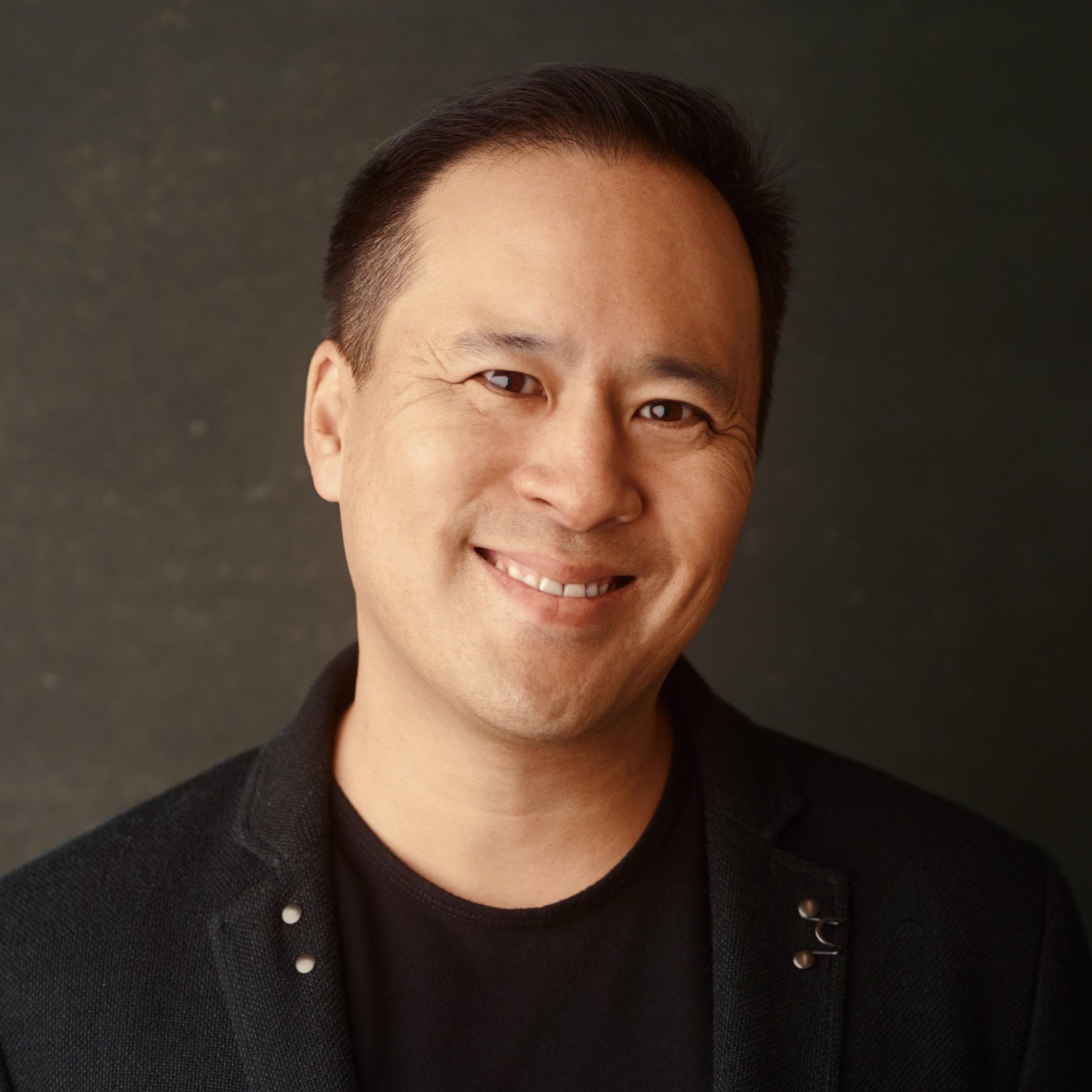
S1E35 - Jeremiah Owyang - Becoming More Human?
ChatGPT took the world, and our imaginations, by storm when it became the first consumer app to reach one million users in five days - the fastest in history. The opportunities and the threats are boundless, but we don’t know what we don’t know. We invited technology analyst Jeremiah Owyang to help us sift through the reality and the hype. Owyang minces no words when he asserts that AI will be the most consequential technology to debut in our lifetimes. The upheaval and displacement will be great, but it will also enable us to reset our relationship to work towards what is inspirational and enlightening. Will AI help us become more human? How will we protect ourselves from bad actors? How will we confirm what is true? How must society adjust? How close is AGI - Artificial General Intelligence - to becoming on par with human intelligence, and how will we know? Will our behavior change if AGI learns how to treat us by how we treat others? There’s no squeezing the genie back into the bottle. Join us for a peek of the brave new world that lies ahead.
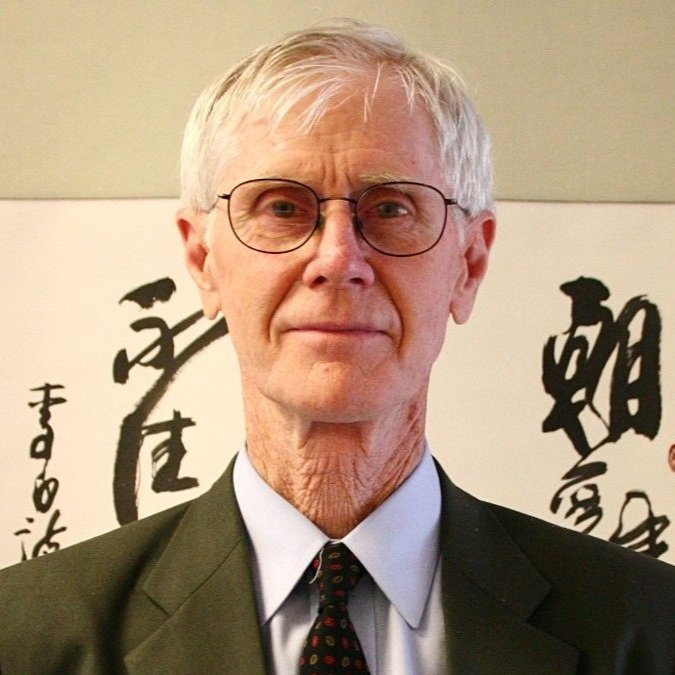
S1E34 - Orville Schell - The Enigma of Xi
It seems that China is in the news every day. To dig in deeper on this issue, we met with Orville Schell - one of the world’s foremost experts on China and US/Sino relations - to help us understand the Chinese perspective and to learn more about China’s leader, Xi Jinping. We dove deep into China’s radical successes, its challenges, its resilience, its leverage, its sense of grievance and victimization, its anti-Western diplomacy, and its troubling aspirations. It has become the strongest member of an autocratic block of nations positioned to resist liberal democracy throughout the world. Despite this worrying preeminence, we know surprisingly little about China’s enigmatic party leader, Xi Jinping. Not only is saber-rattling bad for business, actual military conflict could blow the global economy to blazes. Schell leaves us with the understanding that now is the time to conjure “Kissinger-esque” creativity, and summon new approaches to preserve the peace with Asia’s Middle Kingdom. Join us to learn more.
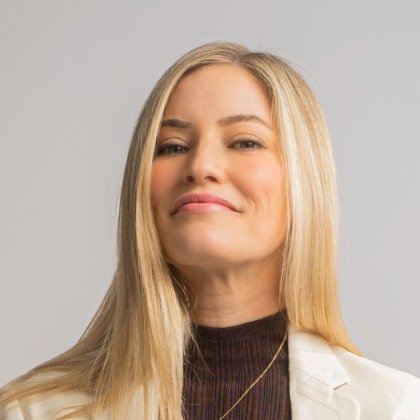
S1E33 - iJustine - The Fire and the Tao of Tech
When British novelist Robert Graves wrote “I Claudius” about the fourth Roman Emperor, he set the stage for our interview with Justine Ezarik, better known as iJustine, who is to me “The Empress of the Internet.” She is a content creator for nearly two decades who has over a billion views on her YouTube channel, and even has young fans who were not yet born when their parents started watching her. We sought to understand the personal and professional trajectory that led to her becoming such an authority on technology and an inspiration to so many. We learned that passion and balance are central themes of her life. Firstly, technology is iJustine’s first love. She observes that, “Today’s technology is so accessible that we can do really anything we want, if we have the will to do it.” This promise lights her up, and powers the fire of her hard-driving work ethic across all her varied interests. Secondly, there is balance - the Tao - the middle way between two extremes. Justine works hard, but also plays hard. She used to be very public about her life, but has now dialed that back to reclaim some of her life for herself. Consequently, she rediscovered authentic fun from what had become “fake fun.” There are troubling aspects about social media, but so too there are amazing aspects that grace those who can strike the balance and curate their consumption carefully. The same goes for Artificial Intelligence (AI) - there are negative uses while at the same time there are wondrous uses. She cautions against becoming too alarmist. Seeking to avoid labels, stay positive, channel creativity, champion access and maintain balance, iJustine - The Empress of the Internet - shows the way. Join us to learn how she does it all.
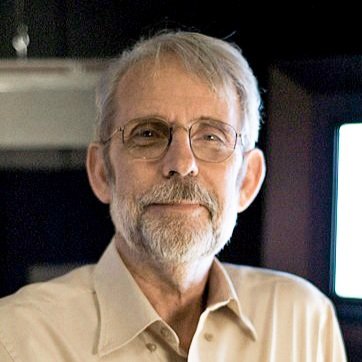
S1E32 - Walter Murch - Nibbling into a Delicious Movie
In this episode we journey with one of the pre-eminent film editors of the last half century, Walter Murch, through tales of his career as an editor and sound designer. His film credits are impressive, including an Oscar for Apocalypse Now, and numerous other iconic films including the Godfather franchise and American Graffiti. Murch’s reflections shed light on how an editor makes sense of the footage a director shoots and renders a “delicious” product, much like a chef whipping up a scrumptious meal from whatever comes home from the hunt, be it mastodon or mouse. Get the Cliff Notes on his Rule of Six, and hear about the recently released sleeper documentary, Coup 53, that illuminates the CIA-organized coup to install the Shah of Iran and set the stage for today’s geopolitics. Film aficionados will relish Murch’s recollections and inside baseball on his many movie credits. Film students will glean valuable guidance on the craft of movie making, collaboration with the director, and creativity in general. Everyone will find inspiration from Murch’s curious mind and “polymathic” abilities. Lucky for us that he had a knack for sounds, a passion for tape recorders, and a love of story. Had he not, we might have lost him to the ocean floor or quantum mechanics. Join us for a delightful hour of movie history and history in-the-making.

S1E31 - Michael Ellis - The Miracle of It All
Join us for a globetrotting “memory lane” walk-a-bout through naturalist Michael Ellis’s countless national and international adventures. These recounted travels feature spectacular natural highlights, present challenging ethical quandaries, and inspire deep metaphorical reflection on our lives in general. Ellis’ favorite international destinations are the Serengeti - birthplace of humanity, the gorillas of Rwanda, Bhutan, Namibia, the South Georgia Islands, the sharks of Palau, the jaguars of the Pantanal and the ecosystem diversity of Brazil’s Mato Grosso. Closer to home, The Cedars in Sonoma County, mountain biking through Canyonlands or Santa Rosa, the whales off the California coast, chipmunk biodiversity in the Sierras, the simultaneous macro and micro expansiveness of the Mojave desert, and the sanctum of the redwoods. Contained within are the largest, oldest and most exotic lifeforms imaginable. How do we ethically appreciate these miracles? Ellis points out that we can love these places to death, smothering them with too much tourism or generating excess carbon in our travel. At the same time, tourism provides the strongest economic incentive for local peoples to protect their natural treasures, without which habitat becomes farmland and bushmeat becomes dinner. There are no easy answers. The majesty of the natural world invites us to release our expectations, be here now, and pause to be amazed by the miracle of it all.

S1E30 - Rick Hanson - Rewiring Our Circuitry
We met with Rick Hanson, best-selling author, Senior Fellow of UC Berkeley’s Greater Good Science Center and founder of the Global Compassion Coalition, to review what neuroscience tells us about how to rewire our mental circuitry for greater physical and emotional wellbeing in the face of the inevitable negative in our lives. Hanson’s latest book, Making Great Relationships, is the launch point for our discussion, but we meander from the microscopic within to the infinite of the Big Bang Universe in our explorations of human potential. How and what is within range as we start on this journey? Is unconditional lovingness a reasonable destination? Can our brains open our hearts? How do we skillfully counteract our negative bias? How do we stop seeking approval? Can we be loyal to ourselves? How do we repair our relationships? Where does aggression fit into this picture? How does imagination shape reality? How do we contend with impermanence? Can we create a world where millions of people and organizations experience community with each other, work for the common good, and drive systemic change? Hanson is certain to “make his team proud” with the legacy of love that he has helped to build. The energy of our conversation is intimate and magnetic. Spare an hour to be struck by the human potential of all that is within reach, wherever we happen to be standing. Join us.

S1E29 - Molly Kawahata - Deploying Hope
We met with former White House Climate Advisor to President Obama, Molly Kawahata, to hear her innovative perspectives on how to make a real difference in society and for the planet. She is principally focused on how we mobilize productive human psychology to motivate broad systemic change. Her insights are fascinating, born of her own personal struggles, that society writ large has been brainwashed into paralysis with propaganda from the fossil fuel industry that is designed to rob us of hope. It seems an impossible premise, but she effectively argues her case of how this happened, and what those concerned about the future of the planet can do differently to make concrete progress toward the “zero carbon promised land.” While applauding those who make personal choices and sacrifices to help the environment in their own lives, Kawahata eschews climate shaming of all kinds, and sees no averting climate catastrophe without public policy that decarbonizes our industrial, transportation and energy sectors. It is not our fault that we use these sectors. They are the only ones that those without privilege have available to access. Most importantly, she implores us to change the debate away from “saving the polar bears” that those with “boots on their neck” can’t afford to care about, to a practical discussion about pollution and equitable access to clean air and water. We can all see the impact from reducing pollution, and we can have hope in our personal ability to make a meaningful impact. What can you do? Deploy hope and get out the vote. Join us for an exhilarating discussion.

S1E28 - Jennifer Egan - Reading Deeply
We met with one of the foremost novelists of our time and Pulitzer Prize winner, Jennifer Egan, to discuss the medium of fiction, the novel, her process, her works and the role of the novelist in democracy writ large. In an age where AI has begun to encroach on seemingly sacrosanct domains of human endeavor like creative writing, Egan gives us hope that writing from human imagination will forever give us unrivaled access to the mind of another person. In what became a masterclass in Egan’s personal writing style, she illuminated how her own improvisation allows her to channel all the forces that exist around her and operate through her. The novel demands that we resist the forces of distraction that dilute us. Fiction delivers compressed knowledge, and preserves our mental agility and our ability to question authority. It is not only entertaining, it is a pillar of a healthy democracy. In her leadership of PEN America, she saw first hand how threatening fiction and the novel can be to autocratic regimes. While indifferent to literary reviews, Egan adores her readers and all they teach her. Most captivating are Egan’s methods of tapping into her unconscious and her imagination — the wellspring of her career. Find renewed determination to read deeply by listening deeply to our charming guest, Jennifer Egan. Join us.

S1E27 - Jack Kornfield - Embodying Graciousness
We met with one of the premier thinkers and teachers of our time, Jack Kornfield, to discuss how we can reclaim our humanity in isolated times, and find an inner state of well-being in the face of our greatest hardships. His sage perspectives on difficult questions were immediately centering and comforting. We touched on advice for living - cultivating compassion, awe and wonder; distinguishing empathy from compassion; navigating compassion fatigue; and finding it even for those we might not like. We explored how building our ability to be deeply aware of our present moment expands our capacity and health. Managing our emotions and keeping our cool is a skill that has helped even the most type-A’s among us be more effective. We discussed how to respond when we witness injustice without contributing to the atmosphere that created the injustice in the first place. We covered what it means that “pain is inevitable, but suffering is optional,” and so much more. Each and every turn in the conversation revealed a new nugget of wisdom for living fully, happily and peacefully. It was an hour beautifully shared. Join us.

S1E26 - Brian Copeland - Life in the Funny Lane
Humor is not just fun and games. For Brian Copeland, award-winning actor, comedian, author, playwright and talk show host, it started as his best defense from bullying on the playground growing up as an African American kid in one of the most racially redlined suburbs in America. Brian went on to wield humor in artful ways throughout his career to tackle some of the thorniest topics of our times in his work, and specifically in his popular one-man-show “Not a Genuine Black Man.” Join us as we explore the mechanics of humor - the creative process, what makes a joke funny - Copeland’s encyclopedic memory of his remarkable journey through the entertainment world, as well as his reflections on the distance we’ve come and have yet to go to collectively acquire genuine understanding and empathy for each other. Join us.

S1E25 - Larry Brilliant - Life in the Time of COVID
At the time of this writing, the White House just announced its intent to end the COVID-19 pandemic “state-of-emergency” designation in the months ahead. Is this a political move or one informed by science? We met with Pandefense Advisory CEO, Larry Brilliant, to learn the latest of what we do and do not know about the real threats of COVID-19 and related outbreaks. What is the history of vaccines in general? What are the criticisms of the standard narrative about CV19? Did CV19 come from the Wuhan open air market or a bio-weapons laboratory? Is there a third credible possible origin of the pathogen itself? How much do we need to worry about the next pandemic? Do lockdowns make sense? In closing, we learned how an accidental hippy stumbled into eradicating smallpox, befriended Steve Jobs and pioneered social media itself to become, “the luckiest guy on earth.” Join us.

S1E24 - Robert Lustig - Killing Me Softly With Sugar
We spoke with metabolic neuroendocrinologist Robert Lustig to discuss his views about the obesity crisis in our country. A powerful mind with a keen eye for digging deep into issues to explore their root causes, Lustig lays bare his critique of powerful forces at work that he believes negatively impact human health and longevity. His position is that added sugar is not a food and meets the criteria of an addictive substance like alcohol or narcotics. Addressing the physiology of metabolism, Lustig recommends lifestyle changes that, if practiced, could dramatically enhance our vitality. How did we get to this point in our obesity crisis? He emphasizes that fortunately there are corrective measures within reach, if we can muster the political will to enact them. What other “addictions” in a broad sense afflict our society? We touch on those as well. Join us.

S1E23 - Vienna Tran - Space Wants To Kill You
We met with space medicine expert Vienna Tran to learn about the health challenges of manned exploration of space. This may seem like an esoteric subject for those who feel like we have more challenges facing us on earth than we can deal with, but Vienna makes a compelling case that conquering the extremes of off-earth existence equips us to better deal with our terrestrial challenges. “A dollar invested in space is worth more than a dollar invested on earth.” Not only is off-world colonization a hedging strategy against an extinction event here on earth, space exploration (including medicine) brings us myriad advancements for terrestrial life. What are the risks? What are the rewards? Join us to gain a glimpse of this brave new frontier.



